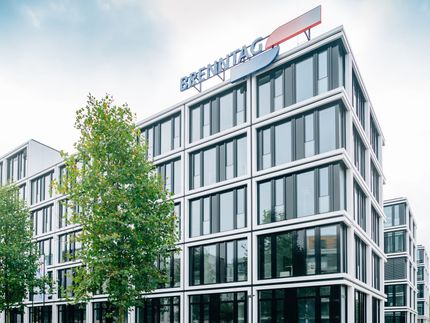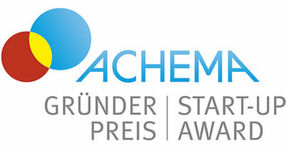Bayer posts positive second quarter and progress on strategic priorities
Advertisement
The Bayer Group is on track following an encouraging first half of the year. “We’re beginning an important second half of 2025, which will be marked by further progress on all strategic priorities, continued launches, and geopolitical and currency crosswinds to navigate,” CEO Bill Anderson said when presenting the company’s Half-Year Financial Report on Wednesday. “Thanks to our year-to-date performance in Pharmaceuticals, we’re raising our 2025 currency-adjusted guidance for the Group on both sales and earnings.” This guidance takes into account the currently projected financial effects from the latest geopolitical developments. At the same time, the company anticipates significant currency fluctuations, with headwinds on sales and profits and favorable effects on net financial debt.
Bayer issued an advance update on Thursday, July 31, in which it provided information on key financial performance indicators for the second quarter and upgraded its full-year guidance for currency-adjusted sales and earnings. As part of that communication, it also reported an increase in provisions and liabilities for litigation in the United States.
“We affirm our objective to significantly contain the litigation risk by the end of 2026,” Anderson noted on Wednesday. As part of its multi-pronged strategy, the company continues to press ahead at full speed as it looks to limit its exposure to the litigation industry, he added. As previously reported, Bayer recognized approximately 1.2 billion euros in additional provisions for glyphosate and approximately 530 million euros in provisions and liabilities for PCBs in the second quarter. In the glyphosate litigation, an appeals court in Missouri upheld an adverse verdict against the company in the Anderson et al. case in May. As a result, Bayer increased its provisions. The company continues to appeal the verdict. “In addition, we’ve recently taken thousands of cases off the table through confidential settlements on a low cost-per-case average in the glyphosate litigation,” Anderson explained. In the glyphosate litigation, in June the Supreme Court of the United States requested a recommendation from the Solicitor General on whether or not to hear the Durnell case. With this decision, the broader timeline of having such a ruling by summer of next year remains intact. However, Bayer’s strategy to tackle the glyphosate litigation is not solely dependent on a positive decision by the Supreme Court. The company also remains active outside of the courtroom and is examining additional options to protect itself, with Anderson noting that “everything remains on the table.” In the litigation surrounding PCBs, Bayer has settled the Burke case on confidential terms. In addition, the company is provisioning for potential settlements with plaintiffs from the Sky Valley Education Center and other litigation costs. The company continues to await a ruling from the Washington State Supreme Court on the Erickson case.
Addressing the additional strategic priorities that Bayer is pursuing, Anderson began by highlighting Pharmaceuticals’ performance. “Beyond the operational success of our Pharma business, we continue to see newsflow on our pipeline and launch assets.” The company is also making headway on its plan to improve profitability in the agricultural business, Anderson said, adding that the Crop Science Division is now in a position to streamline production and operations. The division has also reached a number of important milestones for its crop protection portfolio, with the Environmental Protection Agency (EPA) proposing approval for dicamba in the United States, for instance. In addition, Bayer recently submitted icafolin, a herbicide molecule with blockbuster potential, for approval in the United States, Canada, Brazil and the European Union.
Stable Group sales (Fx & portfolio adj.) and EBITDA before special items
Group sales came in at 10.739 billion euros in the second quarter of 2025, up 0.9 percent on a currency- and portfolio-adjusted basis (Fx & portfolio adj.). There was a negative currency effect of 550 million euros (Q2 2024: 240 million euros). EBITDA before special items amounted to 2.105 billion euros (minus 0.3 percent), and were diminished by a negative currency effect of 184 million euros (Q2 2024: 129 million euros). EBIT came in at 13 million euros (Q2 2024: 525 million euros) after net special charges of 981 million euros (Q2 2024: 490 million euros) that primarily related to allocations to provisions for litigations, impairment loss reversals in the Crop Science Division, and expenses for restructuring. Net income amounted to minus 199 million euros (Q2 2024: minus 34 million euros). Core earnings per share increased by 30.9 percent to 1.23 euros, mainly due to an improved financial result and lower tax expense.
Free cash flow was down 90.2 percent, at 125 million euros. This decline was mainly due to a decrease in operating cash flow that was primarily attributable to higher payments for the Group-wide short-term incentive (STI) program and effects arising from the quarterly shift in the reduction of receivables in the Crop Science Division in the prior year. Net financial debt as of June 30, 2025, stood at 33.274 billion euros, representing a reduction of 2.9 percent against March 31, 2025, that was mainly due to positive currency effects. Compared to June 30, 2024, net financial debt was down 9.5 percent.
Crop Science: Sales up (Fx & portfolio adj.) thanks to corn seed business
In the agricultural business (Crop Science), sales increased by 2.2 percent (Fx & portfolio adj.) to 4.788 billion euros. Corn Seed & Traits sales rose by 29.5 percent (Fx & portfolio adj.) on global price increases and acreage expansion. Business in North America also benefited from volume phasing from the first quarter due to a strategic adjustment of the distribution network. As anticipated, sales at Soybean Seed & Traits and Cotton Seed declined – by 18.1 percent and 25.5 percent (Fx & portfolio adj.), respectively – due to the vacatur of the label for dicamba-based crop protection products in the United States. The overall increase in sales for the seed and traits strategic business entities more than offset an overall decline in sales of crop protection products. The Insecticides business, for instance, was impacted by the expiration of the Movento™ registration in Europe, with sales decreasing 13.1 percent (Fx & portfolio adj.). By contrast, Herbicides sales were up by 1.4 percent (Fx & portfolio adj.), with sales of the glyphosate-based products coming in at the prior-year level as volumes increased, while prices declined.
EBITDA before special items at Crop Science increased by 32.3 percent to 693 million euros, largely thanks to volume phasing from the previous quarter in the corn seed business as well as lower costs. These positive effects more than offset the negative impact from regulatory headwinds. The EBITDA margin before special items rose by 4.0 percentage points to 14.5 percent.
Pharmaceuticals: Nubeqa™ and Kerendia™ continue to post significant gains
Sales of prescription medicines (Pharmaceuticals) came in at 4.470 billion euros, up 0.6 percent (Fx & portfolio adj.). The division again registered particularly strong gains for Nubeqa™, for the treatment of prostate cancer, and Kerendia™, for the treatment of chronic kidney disease associated with type 2 diabetes, with sales rising 50.5 and 67.1 percent (Fx & portfolio adj.), respectively. The Radiology business also delivered substantial growth, primarily driven by higher volumes for Ultravist™ and CT Fluid Delivery. In addition, sales of the ophthalmology drug Eylea™ advanced by 4.3 percent (Fx & portfolio adj.), with business receiving a significant boost from the launch of Eylea™ 8 mg offering extended treatment intervals. These positive effects were partially offset by declines for Xarelto™ in particular, with sales of the oral anticoagulant falling 27.1 percent (Fx & portfolio adj.) due to patent expirations.
EBITDA before special items at Pharmaceuticals decreased by 17.2 percent to 1.094 billion euros. Earnings were impacted by shifts in the product mix, reflecting declines for Xarelto™ and higher sales for Nubeqa™ and Eylea™ in particular, as well as the related increase in license fees. The division also registered a rise in selling and R&D expenses that was partly attributable to the market launch of the heart drug Beyonttra™ (acoramidis) and preparations to support the launch of Lynkuet™ (elinzanetant), a hormone-free treatment for symptoms associated with menopause. Earnings were also diminished by higher investments in early-stage research and in cell and gene therapy and chemoproteomics technologies. Furthermore, the division’s better-than-expected performance resulted in increased expenses for the STI program. By contrast, earnings benefited from cost savings generated by efficiency programs as well as an increase in income from the sale of non-core businesses. The EBITDA margin before special items declined by 4.2 percentage points to 24.5 percent.
Consumer Health: Sales at prior-year level (Fx & portfolio adj.)
Sales of self-care products (Consumer Health) came in at 1.427 billion euros, up 0.2 percent (Fx & portfolio adj.). The division navigated a challenging market environment in the United States and China, characterized by muted consumer sentiment, store closures and market consolidation. Sales were mainly up at Dermatology, with growth of 4.4 percent (Fx & portfolio adj.), and at Allergy & Cold, which posted a gain of 5.7 percent (Fx & portfolio adj.) against a weak prior-year quarter. By contrast, the division recorded a decline of 7.0 percent (Fx & portfolio adj.) at Nutritionals, impacted by market softness in China and cycling over the discontinuation of the direct-to-consumer business under the Care/of brand in the prior year in the United States. In addition, sales at Digestive Health were down 3.8 percent (Fx & portfolio adj.) against a strong prior-year quarter that had benefited from a normalized supply situation.
EBITDA before special items at Consumer Health rose by 5.4 percent to 331 million euros. The growth in earnings was largely due to a decline in the cost of goods sold and a decrease in selling expenses that were driven by efficiencies arising from the division’s continuous cost management efforts. The EBITDA margin before special items increased by 1.7 percentage points to 23.2 percent.
































































